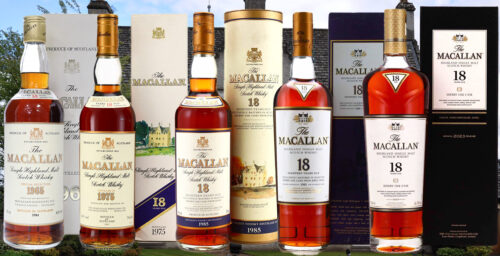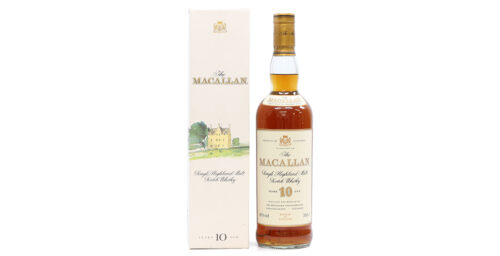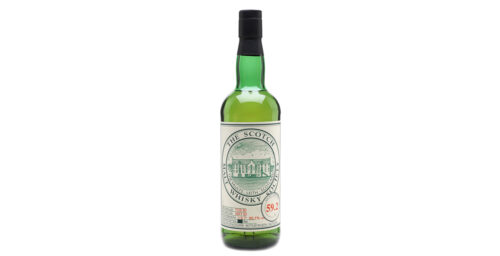
In recent years there has been an industry-wide push for more sustainable practices in the spirits and whiskey industries. Large spirits conglomerates such as Diageo have pledged to achieve net-zero operations by 2030, and have invested heavily in sustainable technologies.
Whilst bigger spirits are implementing plans for sustainability, there are an equal number of small whiskey operations that are spearheading such efforts in their local communities. One such operation is Rabbit Hole Distillery in Louisville, Kentucky. The distillery may be located amongst the hustle and bustle of city life, but founder, CEO, and Whiskey Maker, Kaveh Zamanian has always had a keen focus on the health of the rolling hills outside of the city limits.
I sat down with Kaveh to discuss Rabbit Hole’s environmental initiatives, its recent EPA Energy Star Certification, and how the whiskey industry can strive toward a more sustainable future.
The Beginnings of Rabbit Hole Distillery

Rabbit Hole Distillery was incorporated in 2012 by a man with a passion for American whiskey. However, Kaveh tells me, his initial love affair was with scotch. It was meeting his wife, Heather (a Louisville native) that kick-started his passion for American whiskey and bourbon.
“When I started coming down to Kentucky, to Louisville, almost 21 years ago, I actually started getting a taste of some of what I would call ‘dusties’. Some bottles of Old Fitzgerald from the late 1950s, early 1960s, and some other pre-prohibition and post-prohibition whiskies that were made here in Kentucky,” says Kaveh. The profiles of these old bourbons inspired Zamanian to learn more about the history of distilling in the state. “Those few first drams and sips got me really curious, and launched my long-standing passion for American whiskey.”
Such interest in the history of traditions of bourbon production meant that, upon founding Rabbit Hole in 2012, Kaveh aspired to pay homage to the bourbon distillers of the past, whilst also championing innovation within the category. This mission, Kaveh explains, was borne of a fascination surrounding bourbon production in Kentucky between the Civil War and the enactment of prohibition in 1920.
“Back in the day, between the Civil War and prohibition, there were nearly 2,000 distilleries here in Kentucky alone. A lot of them small, basically agricultural-based mom-and-pop operations. But post-prohibition, a lot of those distilleries went away,” says Zamanian. He explains that the loss of these distilleries, and the subsequent change in distilling styles to compete with the rising popularity of white spirits such as vodka, led to a loss of “attention on what is possible with bourbon. So when I first got interested in the category it was in an effort to create a genuinely unique whiskey expression.”
This opportunity is bolstered by the room for experimentation in bourbon mash bills. According to legislation, a bourbon mash bill must be at least 51% corn. The remaining 49% usually consists of rye, barley, and wheat. Kaveh aptly refers to this wiggle room as “51% corn, 49% possibility.”
EPA Energy Star Certification
Alongside his mission to create unique bourbon expressions, Kaveh Zamanian started Rabbit Hole Distillery with sustainability at the forefront of his mind.
“Sustainability has always been at the top of my mind. For me it relates to being good stewards of the land and what we’re leaving behind,” says Kaveh.
These efforts culminated in Rabbit Hole recently receiving the EPA Energy Star Certification. The U.S. Environmental Protection Agency awarded this certification in November 2023 to only ten US distilleries. Other recipients include Heaven Hill’s Bernheim Distillery and Jack Daniel Distillery in Lynchburg, TN.
According to epa.gov: “On average, a large distillery—one that produces more than 750,000 proof gallons per year—consumes as much energy as 7,000 American homes. Distilleries that earn the ENERGY STAR use significantly less energy, and contribute fewer greenhouse gas emissions, than their peers.”
Sustainable Practices At Rabbit Hole Distillery
I asked Kaveh which sustainable practices at Rabbit Hole led to this certification, and what it means for the distillery.
“I think it came down to the idea of responsible consumption and responsible production. The award, I think, was the result of a few decisions. One of them is a reduction in our water usage, along with our electricity usage, which ultimately leads to less greenhouse gas emissions from the distillery. We’ve also installed high-efficiency LED lighting through the distillery, reduced our steam usage, and increased the amount of setback that we have in our cooker.”
In addition to reclaimed water and energy usage within the distillery, Rabbit Hole has also partnered with the University of Lousiville’s bioproduct distillery to distribute waste for reuse for different purposes. “The byproduct facility is about a mile and a half from the distillery, and that is where they use spent grain and stillage to produce items like low-calorie sweetener and activated carbon for battery cells,” explains Kaveh, “These are all of the ways we started framing our sustainability initiatives.”
Another environmental initiative at Rabbit Hole is that of regenerative farming and agriculture. Kaveh tells me that the distillery has a farm just outside Louisville and that the health of this land is important to both the production of whiskey, and the environment. “We are making an effort to move toward no-till farming on our farm. This also allows us to experiment with cover crops and help to prevent soil erosion.” Such can only be beneficial to the health of the ground, and the grains.
I asked Kaveh what the future holds for Rabbit Hole Distillery’s sustainable practices now that the EPA Energy Star Certification has been achieved. Kaveh does not plan on stopping with this award. “Ultimately, what we are looking to do is reduce our carbon impact. Our goal is to be net zero by 2030. We are inching toward that goal, and that is the objective I am the most proud of. The recognition by the EPA in the form of the Energy Star Cerification is certainly a step in the right direction.”
A Sustainable Vision For The Future
Rabbit Hole Distillery has achieved an extremely important milestone in the form of the EPA Energy Star Certification, and Kaveh and his team are extremely proud of this recognition. However, the industry as a whole has quite a way to go in terms of implementing sustainable practices.
Having already achieved Energy Star status himself, I asked Kaveh what kind of practices he would like to see implemented industry-wide. Alongside factors already discussed such as water and energy usage, Kaveh believes that using recyclable packaging could have a wide-reaching impact on the industry. “We’ve moved away from single-use plastic in our point-of-sale items. I think that being mindful of packaging that is recyclable and reusable is a practice that, if we can begin to expand as a category, will go a long way.
“I think that a big part of this involves maintaining sustainable relationships with suppliers of ancillary goods like cork, glass, labels, and shipping materials. As manufacturers of whiskey, it is important to have these conversations with our partners and request, and ultimately expect, a similar environmental approach when it comes to their part of the supply chain.”
Another initiative that Kaveh would like to see implemented on a wider scale is the nurturing and regeneration of oak trees across the United States. Bourbon is, by law, required to be matured in virgin American white oak. This means that each cask used to mature bourbon has never been used to mature any other liquid, and is coopered specifically for bourbon maturation purposes.
As such, the demand for virgin American white oak is high. To ensure the continued health of the US’s white oak forests, the White Oak Initiative was launched in 2017. With the support of companies such as Brown-Forman and Sazerac, the initiative works to maintain the 104 million acres of forests across the country through replanting.
Knowing that the use of virgin American white oak casks means felling many of these trees, Kaveh hopes that such initiatives will keep the forests blooming. “A lot of the land where white oak grows is now in private hands. So, it is all about educating those private landowners about what they have, and how to take care of it. There is also a Kentucky chapter of the White Oak Initiative. All of these efforts make sure that we take care of the forests, replenish, and regenerate.”
A Collective Effort
Rabbit Hole’s recognition as an Energy Star producer, and the production of Rabbit Hole’s beloved whiskey, Kaveh says, is not just down to him, but is a collective effort across the distillery and its suppliers.
“It’s one of those things that I learned very early on from some of the old timers that taught me how to make whiskey. It’s a collective effort. When we sit at the table or a sensory panel, everybody has an opportunity to contribute.
“I would also like to thank some of our partners. Label makers, Eurostampa. Kelvin Cooperage and Casknolia in Spain are great partners for the making and sourcing of our casks. And, Pavisa and Saverglass have been brilliant also. I am really proud of these partnerships.”
Support Rabbit Hole

Rabbit Hole Distillery is just one of the many distillers in the US that has begun to focus on the sustainability of distilling practices. Luckily for bourbon drinkers, Rabbit Hole is creating whiskey in a way that does not damage the environment, and delicious whiskey at that.
Before we wrap up our chat, I ask Kaveh what we can expect from Rabbit Hole in the coming months. “We just released a Mizunara cask finished bourbon as part of our Founder’s Collection, for which we put out two releases per year, so I am very excited about that. We are also, in the fall, releasing an 8 Year Old expression of our Boxergrail rye. I am also excited about the various cask finishes we have in the pipeline, thanks to our partners at Kelvin Cooperage and Casknolia who helped to source these incredible casks.”
You can browse Rabbit Hole’s sustainably made whiskeys here.
A huge thank you to Kaveh Zamanian for speaking with me about the environmental practices at Rabbit Hole, and how the whiskey industry can move toward a more sustainable future.










